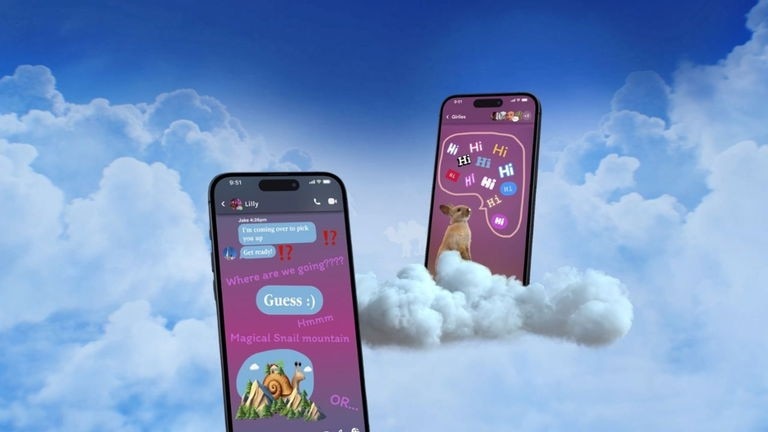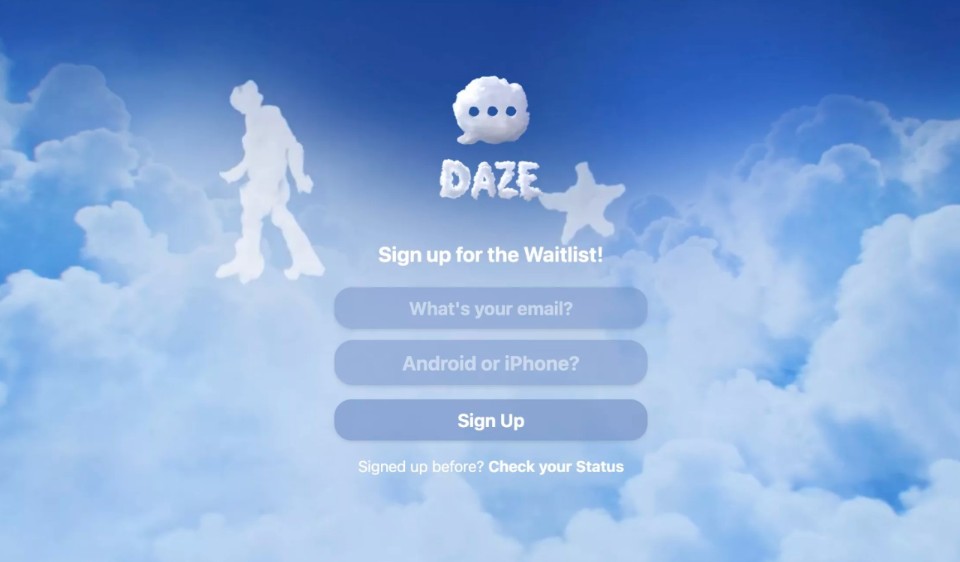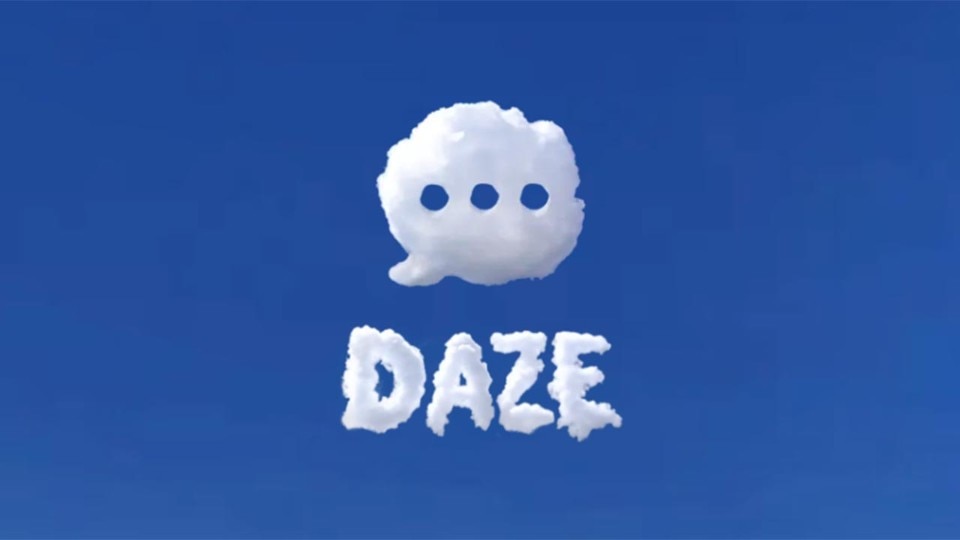In recent years, the app scene has shifted from social networks, whose purpose was to connect us with people and cultivate online relationships (like Facebook and Twitter), to social media, where most users passively consume content from professional or aspiring creators.
This space is carefully led by TikTok, with Instagram following closely – platforms likely to retain their grip on Gen Z and millennials, respectively, for quite some time.

In contrast, the messaging – or rather “social messaging” – scene remains fluid: alongside mainstays like WhatsApp and iMessage (the U.S. default messaging app), platforms such as Telegram, Signal, and Discord among others (like Vibe in Japan, KakaoTalk in South Korea, WeChat in China, etc.) have gained ground.
Each platform offers unique features and distinct characteristics that make them one different from the other, suggesting that new players may still find room in the messaging space. This is likely why the fresh social platform – named Daze – focused entirely on messaging. Scheduled for launch on November 4, Daze has sparked significant anticipation for its release thanks to viral demo videos on TikTok.
Founded by entrepreneur Willem Simons, who has already raised nearly $6 million from various investors, Daze is described as a “freestyle messaging app.” By leveraging generative artificial intelligence, it allows users to enrich their conversations with diverse fonts, colors, animations, quizzes, games, and other features created on the spot by the users, all in an incredibly fast and intuitive manner – at least according to the demo.
“Our goal with Daze has been to make a feature complete messenger that is competitive with iMessage, WhatsApp, etc., while still having a suite of really fun and creative features,” Simons explained to TechCrunch. Daze serves as a “digital blank canvas,” enabling users to unleash their creativity in their messages. Feedback has been positive so far: of the 1,400 users testing the beta version, over 50 percent continue to use the app after 60 days, particularly among the 13- to 22-year-old demographic. In anticipation of its official launch, 156,000 people have already joined the waiting list.

All positive signs. But will Daze be able to move beyond its initial wave of enthusiasm and maintain the interest of the hundreds of thousands – or even millions – of users eager to sign up as soon as possible?
It’s hard to say, especially considering the many disappointments that have marked the past few years. Who remembers Clubhouse? Despite being an undeniable novelty in the social scene and generating immense anticipation – quickly reaching over two million users and a valuation of $100 million in just a few days – the excitement rapidly faded. Today, Clubhouse is the social media equivalent of a zombie.
Our goal with Daze has been to make a feature complete messenger that is competitive with iMessage, WhatsApp, etc., while still having a suite of really fun and creative features.
Willem Simons
This isn’t an isolated case: from Lemon8 (ByteDance’s alternative to Instagram) to BeReal, and to a lesser extent, Threads (Meta’s Twitter clone), new apps often struggle to sustain their initial excitement. Analysts have noted that all these new platforms (Clubhouse being an exception) attempted to recapture the essence of earlier popular social media that users are nostalgic for: BeReal emulates the spontaneity of Stories, Lemon8 harkens back to when Instagram was primarily photo-driven, and Threads reflects the pre-Musk era of Twitter. However, in doing so, they have failed to introduce any real innovations, significantly limiting their chances of long-term success.
As a messaging application offering innovative features and graphics, Daze may have found a way to navigate some of the aforementioned challenges. However, some users have raised potential concerns, noting that “despite the interesting concept, it may require too much effort to send simple messages.”
This sentiment was echoed by another user who observed, “I feel that people mainly seek convenience and speed when messaging, goals that this app’s main function fails to achieve due to the excessive complexity and creativity required to fully utilize it. After a few attempts, it becomes a bit tiring.”
These critiques highlight a crucial point: ease of use is essential for messaging apps, and a lack of it could pose a significant obstacle, especially in the long run. Given the history of past failures, some skepticism is inevitable. However, a comprehensive assessment will need to wait until at least spring of next year.

Ethimo's latest collection is all about weaves
Inspired by the traditional craftsmanship of Eastern Spain and patios, the new collection designed by Studio Zanellato/Bortotto reimagines the aesthetics of comfort.


















